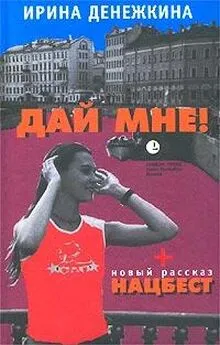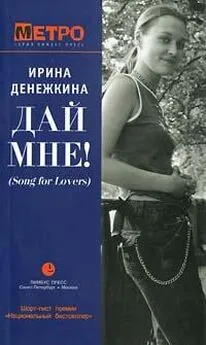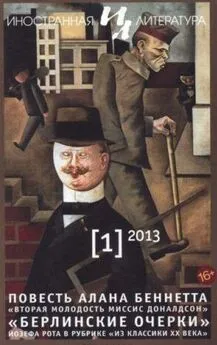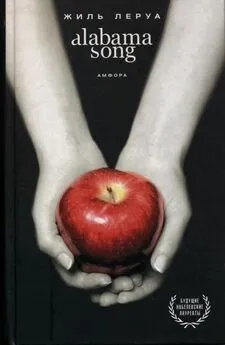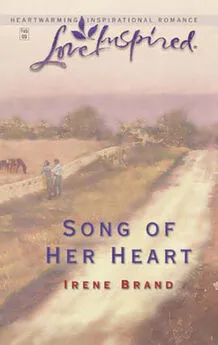Toni Morrison - Song of Solomon
- Название:Song of Solomon
- Автор:
- Жанр:
- Издательство:неизвестно
- Год:неизвестен
- ISBN:нет данных
- Рейтинг:
- Избранное:Добавить в избранное
-
Отзывы:
-
Ваша оценка:
Toni Morrison - Song of Solomon краткое содержание
Song of Solomon - читать онлайн бесплатно полную версию (весь текст целиком)
Интервал:
Закладка:
The Byrd house sat on a neat lawn separated by a white picket fence from the field grass on either side of the property. A child’s swing dangled from a cedar tree; four little steps painted blue led up to the porch, and from the window, between fluttering curtains, came the smell of gingerbread baking.
A woman who looked to be about his mother’s age answered the door.
“Miss Byrd?” Milkman asked her.
“Yes?”
“How are you? My name is, uh, Macon, and I’m visiting here for a few days. I’m from Michigan and I think some of my people lived here a long time ago. I was hoping you’d be able to help me.”
“Help you what?” She sounded arch and Milkman had the distinct impression that this lady did not like the color of his skin.
“Find them. I mean find out about them. We’re all split up, my family, and some folks in town thought you might know some of them.”
“Who’s that, Susan?” Another woman’s voice came from behind her.
“Somebody to see me, Grace.”
“Well, why don’t you ask him in? Don’t make him state his business on the steps.”
Miss Byrd sighed. “Please come in, Mr. Macon.”
Milkman followed her into a pleasant living room full up with sunshine. “Excuse me,” she said. “I didn’t mean to be rude. Please have a seat.” She motioned to a gray velvet wing-back chair. A woman in a two-piece print dress came into the room, clutching a paper napkin in her hand and chewing on something.
“Who’d you say?” She addressed her question to Miss Byrd, but ran inquisitive eyes over Milkman.
Miss Byrd held out a hand. “This is a friend of mine—Miss Long. Grace Long—Mr….”
“How do you do?” Grace held out her hand to him.
“Fine, thank you.”
“Mr. Macon, is it?”
“Yes.”
“Susan, perhaps Mr. Macon would like some refreshment.” Miss Long smiled and sat on the sofa facing the gray chair.
“Well, he just stepped foot in the door, Grace. Give me time.” Miss Byrd turned to Milkman. “Would you like a cup of coffee or some tea?”
“Sure. Thanks.”
“Which one?”
“Coffee’s all right.”
“You’ve got butter cookies, Susan. Give him some of those butter cookies.”
Miss Byrd gave her friend a tired frown. “I’ll just be a minute,” she said to Milkman, and left the room.
“Yes, well. Did I hear you say you were visiting in these parts? We don’t see too many visitors.” Grace crossed her ankles. Like Susan Byrd, she wore black laced shoes and cotton stockings. As she made herself comfortable, she inched her dress up a little.
“Yes, visiting.”
“You in the service?”
“Ma’am? Oh, no. I was hunting last night. Some friends lent me these.” He smoothed the seam Sweet had made in the fatigues.
“Hunting? Oh, Lord, don’t tell me you’re one of them. I can’t stand those hunting people. They make me sick, always prowling round other people’s property. Day and night they’re shooting up the world. I tell my students—I’m a schoolteacher, you know, I teach over at the normal school. Have you seen it yet?”
“No, not yet.”
“Well, there’s nothing to see, really. Just a school, like any other. But you’re welcome to stop by. We’d be pleased to have you. Where you from again?”
“Michigan.”
“I thought so. Susan!” She turned around. “He’s from up North.” Then back to Milkman: “Where are you staying?”
“Well, nowhere yet. I just met a few people in town and…”
Susan Byrd came in with a tray of coffee cups and a plate of wide pale cookies.
“He’s from Michigan,” said Grace.
“I heard him. How do you take your coffee?”
“Black.”
“Black? No cream or sugar at all?” asked Grace. “Wish I could do that; maybe I could get back into a twelve. But it’s never going to happen now.” She pressed one hand on her hip and smiled at Milkman.
“What did you want to see me about?” Susan Byrd placed a mild but clear stress on the word “me.”
“I’m trying to locate anybody who might have known my grandmother. Her name was Sing.”
Grace clapped her hands to her mouth and gave a little squeal. “Relatives! You all are relatives!” Milkman put his cup down. “Well, I’ll be!” Grace’s eyes were lit and dancing.
“You’ve come to the right place,” said Susan, “but I doubt if I can help you any.”
“What are you talking about, Susan? Your mother was named Sing, wasn’t she?”
“No, she wasn’t, Grace, and if you let me finish a sentence you might learn something you don’t know too.”
“I thought you said—”
“My mother’s name was Mary. M-a-r-y, Mary.”
“Well, excuse me. ”
Susan turned to Milkman. “My father, Crowell Byrd, had a sister named Sing.”
“That must be her! My grandmother! Sing. Did she marry a man named—”
“I knew there was somebody in your family named Sing!”
“She didn’t marry anybody that I know of.” Susan interrupted them both.
“Oh, this is really something. A stranger walks right into your house and he’s your own …what? Cousin? I hate to say it, but this is a small world. Isn’t it? You have got to visit my class, Mr. Macon.”
Milkman joined Susan Byrd in ignoring Grace Long. “Where did she live?” he asked her.
“The last time my father saw her, she was on a wagon headed for Massachusetts to a private school up there. A Quaker school.”
“Your people Quakers? You never told me that. See, Mr. Macon, what your friends hide from you? I bet she’d hide you too.”
“And she never married?” Milkman couldn’t take the time to acknowledge Grace’s attentions.
“Not anybody we heard of. After she went to that Quaker school they lost track of her. I believe they tried to locate her, mostly because my grandmother—her name was Heddy—she was so torn up about it. I always believed the same thing my father believed: that she didn’t want to be found after she left that school.”
“You know darn well she didn’t,” said Grace. “She probably started passing like the rest of ’em, that’s what.” She leaned toward Milkman. “There used to be a lot of that. A Not so much nowadays, but there used to be a lot of ’em did it—if they could.” She shot a glance at Susan. “Like your cousins, Susan. They’re passing now. Lilah, John. I know John is, and he knows I know he is.”
“Everybody knows that, Grace.”
“Mr. Macon doesn’t know it. I saw John on the street in Mayville—”
“Mr. Macon doesn’t need to know it. He’s not even interested.”
“How do you know he’s not?”
“Because he said the woman he’s looking for was his grandmother, and if she’s his grandmother she’d be too dark to…” Susan Byrd hesitated. “Well, too dark to pass. Wouldn’t she?” She flushed a little.
Milkman ignored the question. “And you say she lived in Massachusetts, right?”
“Yes. Boston.”
“I see.” It looked like a dead end, so he decided to follow another line. “Did you ever know or hear of a woman around here named Pilate?”
“Pilate. No. Never. Have you, Grace?”
Grace shook her head. “No, and I’ve been here most of my life.”
“I’ve been here all of mine,” said Susan. “Both my parents were born here and so was I. Never been farther away than St. Phillips County. I have people in South Carolina, but I’ve never even been to visit them.”
“That’s because they’re passing too. Just like John. You couldn’t visit them if you wanted to.” Grace leaned over the plate of cookies and selected one.
“They’re not the only family I have left.” Susan was indignant.
“I hope not. It’s a sad thing, Mr. Macon, when you’re left without any people to claim you. I keep up with my family. I’m not married, you know, not yet anyway, but my family is very close.” She gave him a meaningful look. Milkman turned his wrist and looked down to see what time it was.
“Oh, look at that.” Grace pointed to his hand. “What a good-looking watch. May I see it?” Milkman stood up to hand it to her and remained standing. “Look, Susan, it doesn’t have a single number on it. Just dots. Now, how can anybody figure out what time it is from those dots?”
Susan rose too. “You ever been down here before, Mr. Macon?”
“No. This is my first visit.”
“Well, I hope it won’t be your last. How long will you be here?”
“Oh, I think I’ll get on back tonight or tomorrow at the latest.” He looked out the window. The sun was dropping.
“That soon?” asked Grace. “Why don’t you give him something to take with him, Susan? Would you like to take some butter cookies with you, Mr. Macon?”
“No, thank you.”
“You’ll be happy to have them later.” The woman was wearing him down. He smiled, though, and said, “If you like.”
“I’ll fix a little package for you. Okay, Susan?” She fled from the room.
Susan managed a small smile. “Wish you could stay and visit with us awhile.” Her words were as mechanical as her smile.
“So do I,” he said, “but, well, maybe I’ll be back.”
“That’d be nice. Sorry I couldn’t be of any help to you.”
“You have been.”
“Have I?”
“Oh, sure. You have to know what’s wrong before you can find what’s right.”
She smiled a genuine smile then. “It’s important to you, is it, to find your people?”
Milkman thought about it. “No. Not really. I was just passing through, and it was just—just an idea. It’s not important.”
Grace returned with a little parcel wrapped in white paper napkins. “Here you are,” she said. “You’ll appreciate this later on.”
“Thank you. Thank you both.”
“Nice meeting you.”
“And you.”
He left the house feeling tired and off center. I’ll spend one more night here and then leave, he thought. The car should be fixed by now. There’s nothing here to know, no gold or any traces of it. Pilate lived in Virginia, but not in this part of the state. Nobody at all has heard of her. And the Sing that lived here went to Boston, not Danville, Pennsylvania, and passed for white. His grandmother would have been “too dark to pass.” She had actually blushed. As though she’d discovered something shameful about him. He was both angry and amused and wondered what Omar and Sweet and Vernell thought of Miss Susan Byrd.
He was curious about these people. He didn’t feel close to them, but he did feel connected, as though there was some cord or pulse or information they shared. Back home he had never felt that way, as though he belonged to anyplace or anybody. He’d always considered himself the outsider in his family, only vaguely involved with his friends, and except for Guitar, there was no one whose opinion of himself he cared about. Once, long ago, he had cared what Pilate and Hagar thought of him, but having conquered Hagar and having disregarded Pilate enough to steal from her, all that was gone. But there was something he felt now—here in Shalimar, and earlier in Danville—that reminded him of how he used to feel in Pilate’s house. Sitting in Susan Byrd’s living room, lying with Sweet, eating with those men at Vernell’s table, he didn’t have to get over, to turn on, or up, or even out.
And there was something more. It wasn’t true what he’d said to Susan Byrd: that it wasn’t important to find his people. Ever since Danville, his interest in his own people, not just the ones he met, had been growing. Macon Dead, also known as Jake somebody. Sing. Who were they, and what were they like? The man who sat for five nights on a fence with a gun, waiting. Who named his baby girl Pilate, who tore a farm out of a wilderness. The man who ate pecans on a wagon going North. Did he have brothers or sisters whom he left behind? Who was his mother, his father? And his wife. Was she the Boston Sing? If so, what was she doing on a wagon? Why would she go off to a northern private school on a wagon? Not a carriage or a train, but a wagon—full of ex-slaves. Maybe she never got to Boston. Maybe she didn’t pass. She could have changed her mind about school and run off with the boy she ate pecans with. And whoever she was, why did she want her husband to keep that awful name? To wipe out the past? What past? Slavery? She was never a slave. His slave past? And why didn’t his own father, and Pilate, know any of their own relatives? Wasn’t there any family to notify when the father died? Macon didn’t ever try to get to Virginia. Pilate headed straight for it.
Читать дальшеИнтервал:
Закладка:

